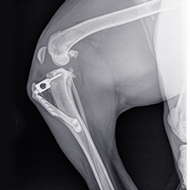Scientists find evidence of livestock-to-human transmission
New research has revealed that a type of Methicillin-resistant Staphylococcus aureus (MRSA) found in humans originated in cattle at least 40 years ago.
Scientists based at the University of Edinburgh's Roslin Institute looked at the genetic make-up of more than 40 strains of Staphylococcus aureus, which can build up antibiotic resistance and develop into MRSA.
They found that at least two genetic subtypes of the bacterium can be traced back to cattle – most likely as a result of direct contact from humans working with farm animals, according to the scientists.
When this bacterium became present in humans, it grew resistant to the antibiotic methicillin, therefore developing into MRSA.
The results show clear evidence that livestock was the original source of a type of MRSA that is now widespread in humans. However, scientists say it does not appear any more aggressive or resistant than other forms.
It is hoped that the study will help reveal how bacteria is able to spread and cause disease in humans, thus helping to prevent it from happening in the future.
Lead researcher, Professor Ross Fitzgerald, said: "Human infections caused by bacteria being transmitted directly from livestock are well known to occur, however, this is the first clear genetic evidence of subtypes of Staphylococcus aureus, which jumped from cattle and developed the capacity to transmit widely among human populations."
The study has been published in the mBio journal.






 Birmingham Dogs Home has issued an urgent winter appeal as it faces more challenges over the Christmas period.
Birmingham Dogs Home has issued an urgent winter appeal as it faces more challenges over the Christmas period.
